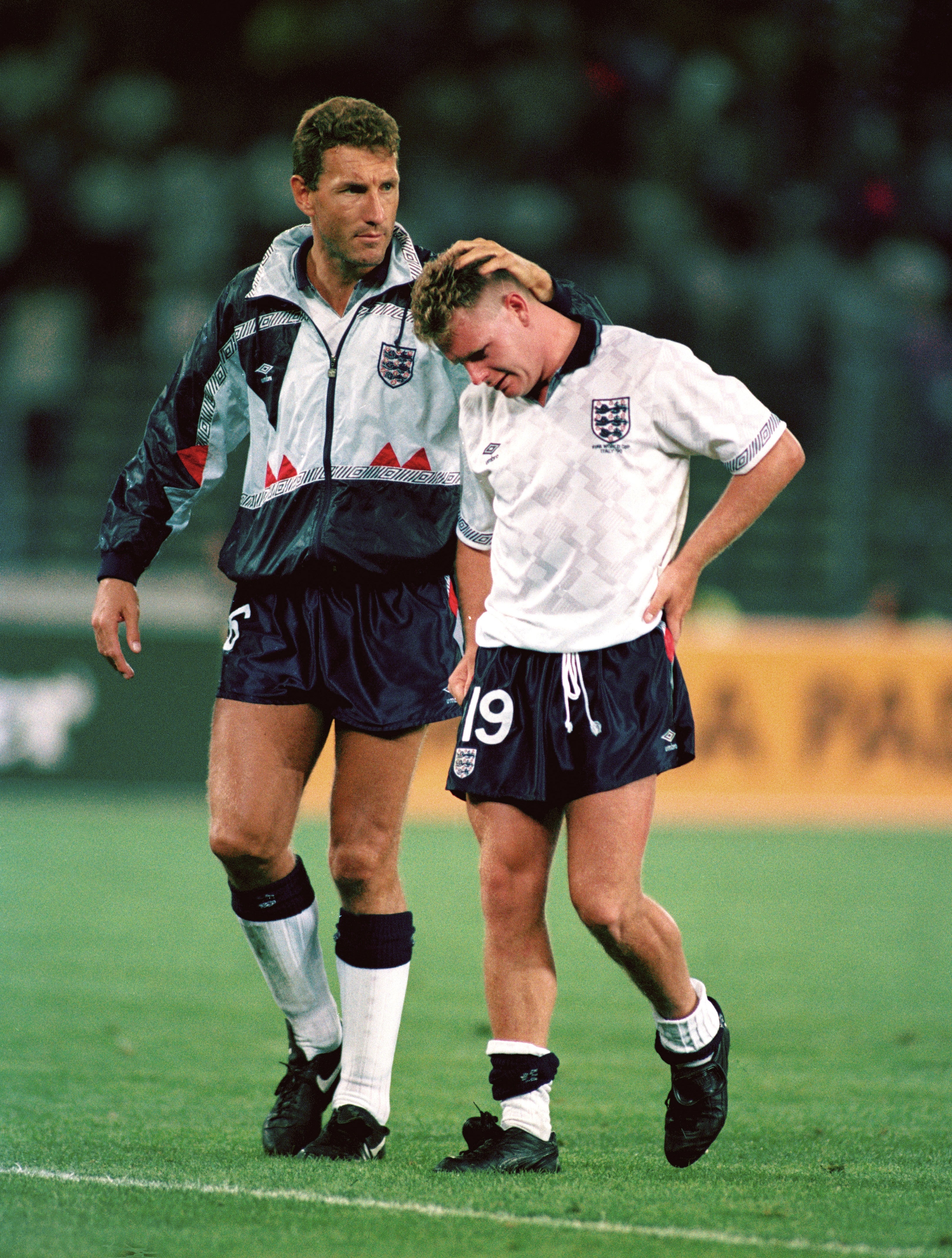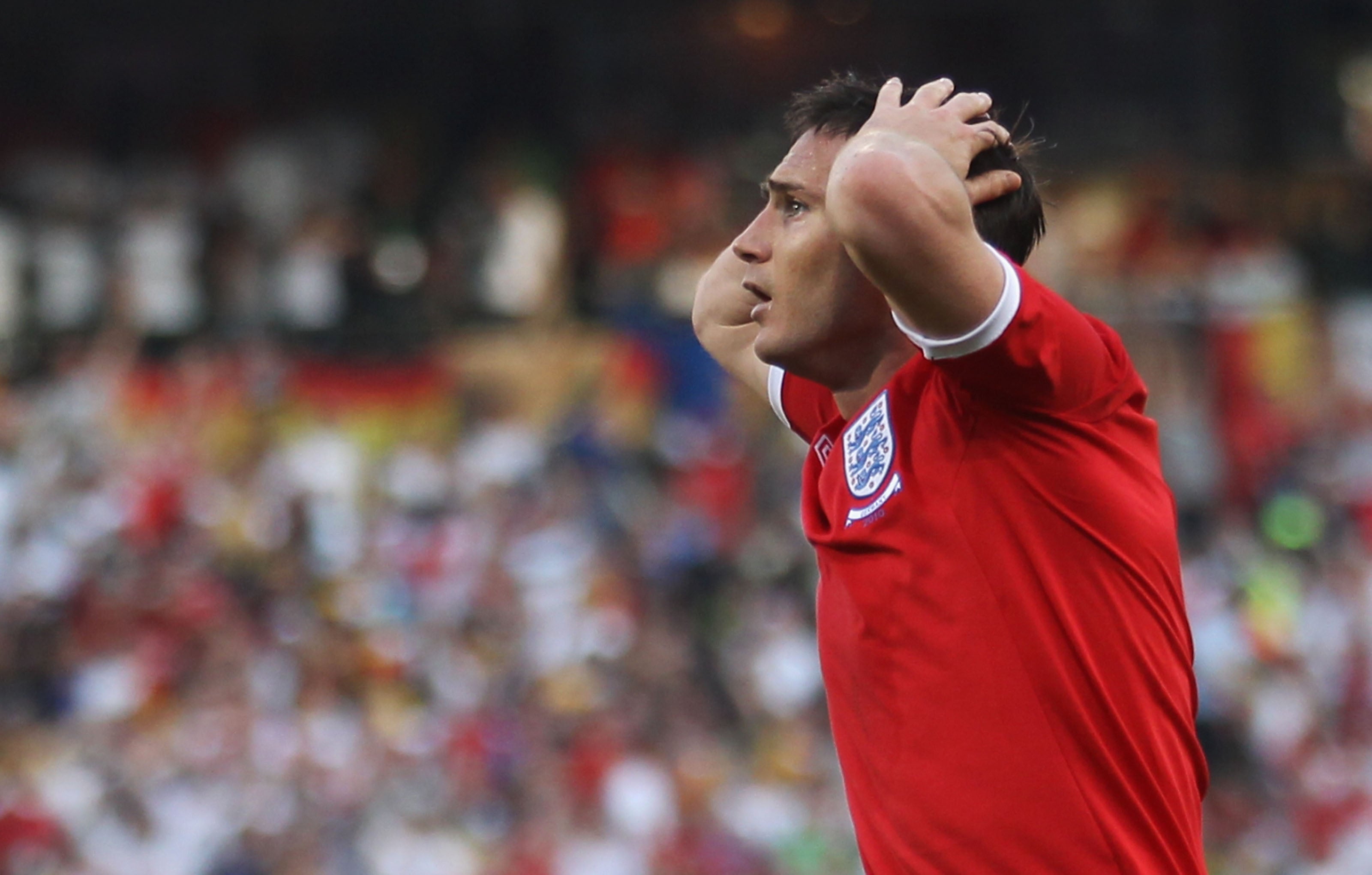From Gazza’s tears to Rooney’s rant: The tragicomedy of England abroad
From Paul Gascoigne crying in Turin and Wayne Rooney’s rant towards Three Lions fans in Cape Town to David Beckham’s red card in Saint-Etienne, the Three Lions have suffered when playing on foreign soil
Your support helps us to tell the story
From reproductive rights to climate change to Big Tech, The Independent is on the ground when the story is developing. Whether it's investigating the financials of Elon Musk's pro-Trump PAC or producing our latest documentary, 'The A Word', which shines a light on the American women fighting for reproductive rights, we know how important it is to parse out the facts from the messaging.
At such a critical moment in US history, we need reporters on the ground. Your donation allows us to keep sending journalists to speak to both sides of the story.
The Independent is trusted by Americans across the entire political spectrum. And unlike many other quality news outlets, we choose not to lock Americans out of our reporting and analysis with paywalls. We believe quality journalism should be available to everyone, paid for by those who can afford it.
Your support makes all the difference.“There's some corner of a foreign field that is forever England,” wrote Rupert Brooke. Although it is probably defined by disappointment. And if the corner isn’t, the penalty spot almost certainly is. Which, as Brooke was a poet who died in World War 1, rather predated him. But Gareth Southgate has taken England – or one version of England, anyway – further on foreign fields than anyone else.
A first final abroad, the prospect of a first trophy anywhere other than Wembley stands in stark contrast to England’s tragicomic tournament record abroad. A history of hubris and humiliation, ignominy, injury and illness, goalkeeping errors and goalkeeping understudies.
And penalties; conceded by Phil Neville, ballooned by Chris Waddle and David Beckham and Harry Kane, missed by Stuart Pearce and Paul Ince and David Batty and Darius Vassell and Steven Gerrard and Frank Lampard and Jamie Carragher and Ashley Cole and Ashley Young.
England have arguably conceded the greatest goal and the silliest goal in World Cup history, in the same match, to the same player, within a few minutes, in Diego Maradona. They have been beaten by a dishwasher (the scorer Joe Gaetjens’ job, not a domestic appliance) and Iceland (the country, not the supermarket).
In their misplaced superiority, they did not deign to enter the first three World Cups. Some of their subsequent fortunes may at least indicate it spared them embarrassment. Their second game instead came in 1950, the 1-0 defeat to the United States, courtesy of a goal by Gaetjens, who was never actually an American citizen; the (probably apocryphal) story was that some British newspapers, refusing to believe the 1-0 scoreline, printed it as a 10-0 or 10-1 win instead.
England have subsequently met the USA in two more World Cups, winning neither game. Yet if 1950 set the tone for tournaments when England expected but often underachieved, there have been different details about their inability to win. In 1954, for instance, they named 22 players in their squad, but only actually took 17 of them to Switzerland. It was an early definition of flying economy. In 1962, a dog that escaped onto the pitch ended up relieving itself on Jimmy Greaves’ leg. There have been metaphors for the rest of the world’s relationship with England.
Along the way, there are themes. There have been games when England took the lead and lost their way, matches where their response to trailing has been incoherent. England have been beaten by some of the greats, by Garrincha and Jairzinho, Maradona and Marco van Basten. They have been outclassed and out-passed by Andrea Pirlo and Luka Modric and Mesut Ozil. They have gone out on some hideous days for goalkeepers: Gil Merrick in 1954, Peter Bonetti in 1970, Peter Shilton, outjumped by the diminutive Maradona for the ‘Hand of God’, David Seaman lobbed by Ronaldinho in 2002, Joe Hart badly at fault for Kolbeinn Sigthorsson’s winner for Iceland eight years ago.

There have been infamous substitutions, Sir Alf Ramsey taking off Bobby Charlton and thus liberating Franz Beckenbauer in 1970, Graham Taylor ending Gary Lineker’s international career by replacing him with Alan Smith in Euro 1992. There have been the red mist and the red cards, from Alan Mullery to Beckham to Wayne Rooney in 2006.
There was Rooney complaining “nice to see your own fans booing you” after the 2010 draw with Algeria. In one of England’s most ignominious tournaments, there was the Frank Lampard’s shot that crossed the German line, yet was not given. There was the subsequent World Cup, when England were out six days after their first game. Completing a dismal decade, there was Iceland in 2016: at least Roy Hodgson got to take Ray Lewington on a boat trip along the Seine. There have been teams who have stunk out tournaments and hooligans their hosts were glad to see the back of.

There have been the times when England have been weakened: by the late loss of Gordon Banks in 1970s, by the times from Kevin Keegan in 1982 to Beckham in 2002 to Rooney in both 2006 and 2010, they were fielding the semi-fit.
There have been heroic near-misses, too: almost a national tradition, including the 1986 comeback in vain against Argentina, the epic semi-final against West Germany in 1990, the valiant effort of the 10 men against Argentina in 1998; even, perhaps, Portugal in 2004 when England can imagine they would have won had Rooney not been injured. There was the 1958 World Cup which, but for the Munich Air Disaster, may have been very different. There were alternative histories, sliding-doors moments, tales of 'almost' and 'what if?'.

So as they go to Berlin for the Euro 2024 final, it is with ghosts to exorcise, from Belo Horizonte and Bloemfontein, of the days they failed to qualify for tournaments and the days they exited them. Every other country that has won the World Cup or the European Championships has done so on foreign soil (though some have also triumphed at home). Not England; they have Wembley in 1966. It is a reason why the image of Paul Gascoigne crying in Turin in 1990 remains such an iconic moment. That World Cup has remained the closest England have come abroad.
Until now. England’s first final beyond its borders and coastline occurs in the German capital, in a role reversal. Euro ’96 ended with Germany celebrating, followed by Jurgen Klinsmann and co singing “Football’s coming home” on a balcony in Frankfurt. England exported football, but was less successful when taking its national team abroad. But now there is a chance there will forever be a corner, even a penalty spot, of a foreign field in Berlin that is forever England.



Join our commenting forum
Join thought-provoking conversations, follow other Independent readers and see their replies
Comments